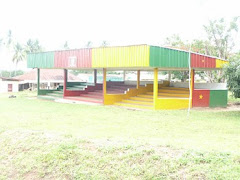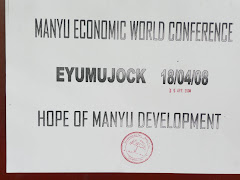
Cameroon Tribune
Chief Mbi Oruh Michael, Technical Adviser NO.1 in the Ministry of Industries, Mines and Technological Development and Project Coordinator.
What is the project on improving palm oil production all about?
What is the project on improving palm oil production all about?
The oil palm project has three components. The first component is technology transfer. We want to improve on existing mail, that is taking a small mail to a larger scale. The second phase is to increase the supply capacity. That is, helping farmers by giving them fertilisers and teaching them good agronomic techniques so that they can be able to improve their farm yields. Finally, we talk about market access and this means quality, for without good quality you cannot be competitive in the international market.
Does the project seek to modernise or industrialise palm oil production in the country?

Actually we want to industrialise it, you know that we are the Ministry of Industries, Mines and Technological Development. When you talk in terms of modernising, you move towards industrialisation. But we want to take those involved in the sector gradually. The Malaysians started this with four hectares per person and we think in Cameroon we can start it with five hectares per person but we are encouraging small and medium-sized companies likewise big ones into the sector. In the Malaysian context, we have the small producers about 80 - 90 per cent of the total production as against 5 - 10 per cent in Cameroon. So the agro-industries are producing about 90 per cent and that is why we have a problem of poverty. It is only when this is reversed that we can talk of improving the income generating potentials of oil palm production and stepping up the standards of living of the population.
How far with the project, some weeks after its official launching?
We launched it on March 4, 2010 and that was actually the inception where we are trying to identify the various pilot centres. We have visited some pilot centres; a lot of them have not met the criteria and based on that we are now trying to visit some other groups. However, the finances had been cleared. You know it is financed by the Common Fund for Commodities and to be executed by UNIDO. So everything is set in terms of implementation but we want to get the real actors because in a project you need to make a right choice so as to attain your objective. Cameroon has four centres and a big country like Nigeria has two. Another important thing is that we are going to help Cameroonians who have one hectare to move up to about five hectares and when you calculate you can realise that the person with five hectares can earn about FCFA 200,000 - 250,000 a month.
How much is the entire cost of the project and what will Cameroon government contribute?
We are talking about a project of about FCFA 2 .5 billion. The Cameroon government has what we call counterpart contribution which is about FCFA 400 million and it has started paying so we are on tract. So far, the money for the project is available.
What is national production, what is the actual demand and what is your target?
One difficulty we have in Cameroon is in terms of statistics. So far, we say we have a production level of about 200,000 tons yearly and demand is about 250, 000 tons so we have a deficit of 50,000 tons annually. Palm oil contributes greatly to the country's socio-economic development looking at the areas that are concerned with the product.




























No comments:
Post a Comment